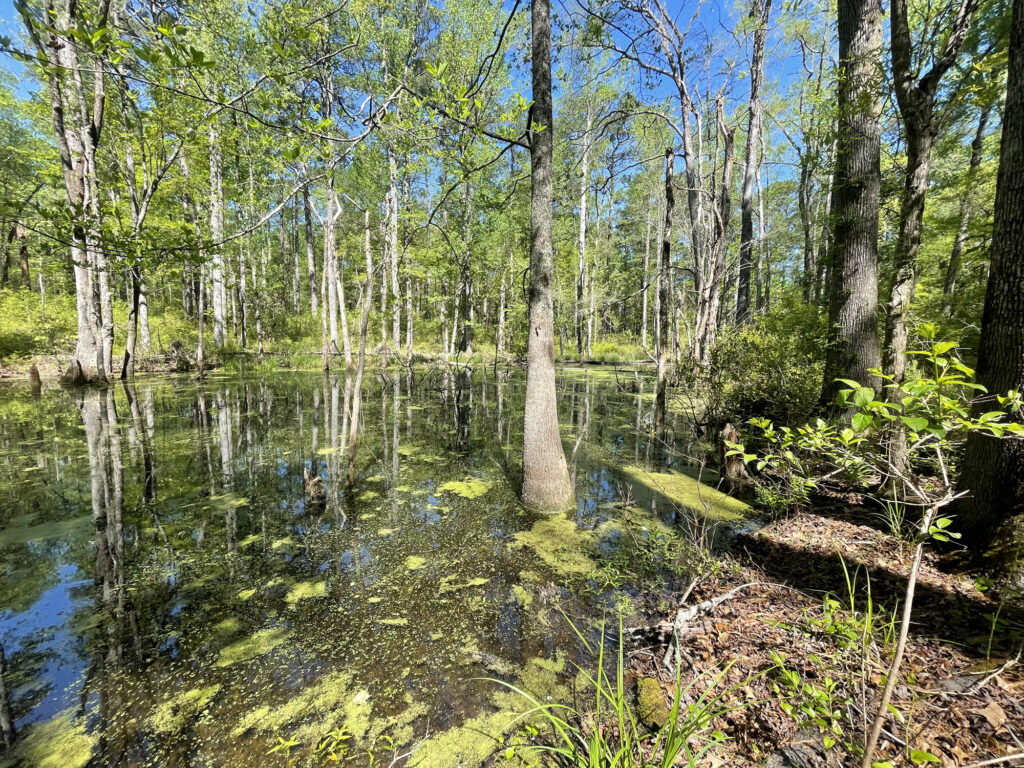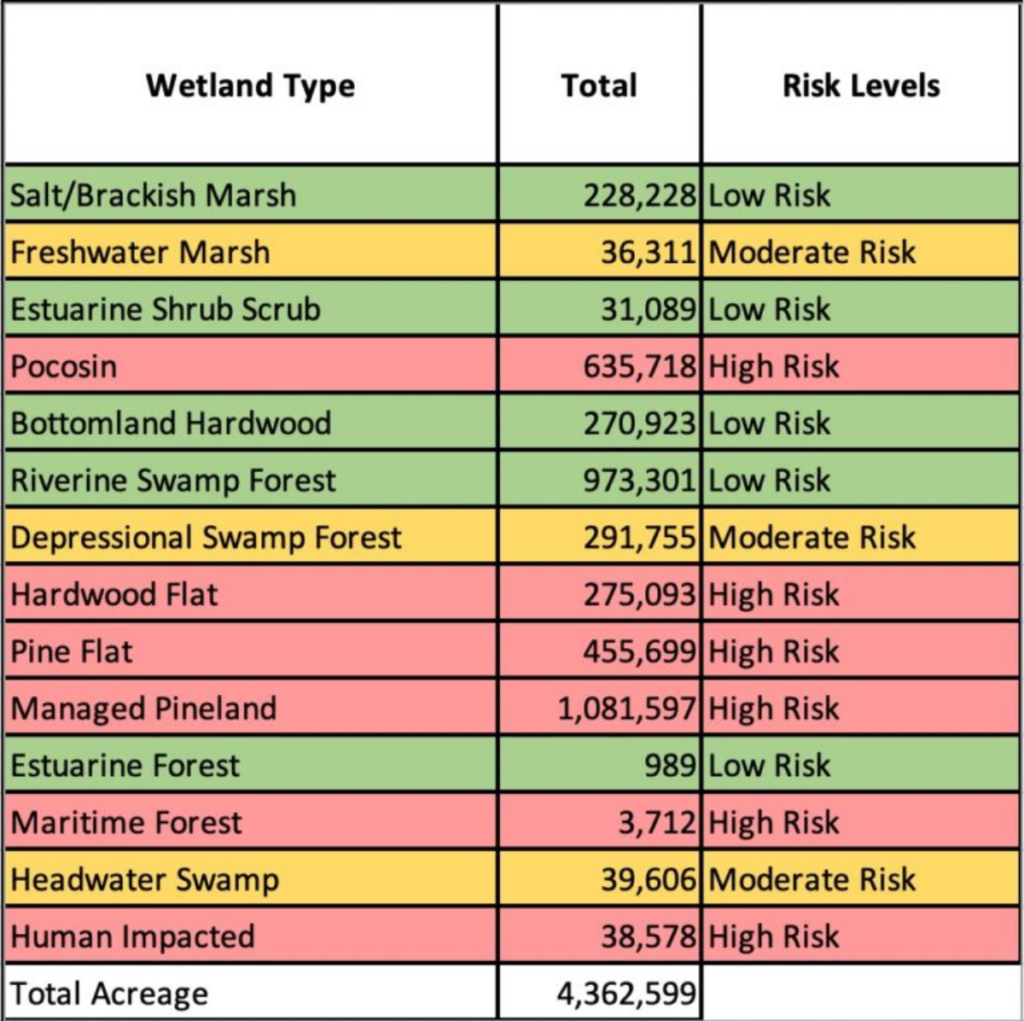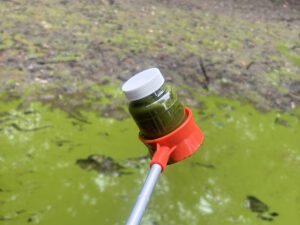News
Disastrous wetland provisions made into law
Advocacy, Legislative, Neuse River Watershed, Sound Rivers, Tar-Pamlico Watershed, Water Quality, Wetlands
Posted on June 29th, 2023
A riverine wetland in Croatan National Forest.
This week, North Carolina Gov. Roy Cooper attempted to use his veto power to block harmful wetland provisions in the North Carolina Farm Act of 2023 (Senate Bill 582), but the state legislature overrode his veto, resulting in the passage of these disastrous provisions into law.
Now, more than 2.5 million acres of North Carolina’s wetlands are left without protections. This amounts to 7% of the state’s total landmass, and nearly half of our total remaining wetlands.
“In the short term, this means that these unprotected wetlands can now be ditch, drained, developed and polluted without regulation. In the longer-term, this means that North Carolina’s communities can expect more flooding and more polluted waterways in the years to come,” said Sound Rivers Neuse Riverkeeper Samantha Krop.
When it comes to providing flood protection and clean water for communities, even the smallest wetlands are critically important. Wetlands soak up rainwater, recharging groundwater supplies and preventing heavy runoff from overwhelming our surface water and downstream communities. Wetlands also clean our water resources by filtering out sediments and other pollutants before they travel to our rivers and drinking water supplies.
The state of North Carolina’s own environmental agencies recognize the incredible value of wetlands in our state’s flood-prevention strategy. While the state of North Carolina invests hundreds of millions of dollars in flood prevention and resilience — including on projects dedicated to wetland protection — the legislature’s rollback of millions of acres of wetland protections undercuts these valuable flood prevention efforts.
“The removal of critical protections for our wetlands undermines the promise of the Clean Water Act. It’s a move that benefits the interests of big builders and developers at the expense of our waterways and downstream communities,” Samantha said. “Now it is critical that communities across North Carolina speak out and tell our legislature not to leave the Capitol until they ensure protections for our state’s wetlands — our best natural tool for flood resilience.”


Related News

Updated: Algal bloom spotted on Runyon Creek pond
November 13th 2025

Slocum Creek pollution: good news offsets the bad
November 13th 2025

7 more sites added to a growing Water Watch
November 13th 2025

Mid-East seeking input for Wastewater Improvement Plant
November 13th 2025

Water Watch dashboard debuts at Kinston training
November 6th 2025

Sound Rivers heads to mountains, WKC conference
November 6th 2025

Stoney Creek eyed for Trash Trap No. 12
November 6th 2025

Sound Rivers' Annual Auction Starts Saturday!
October 30th 2025

